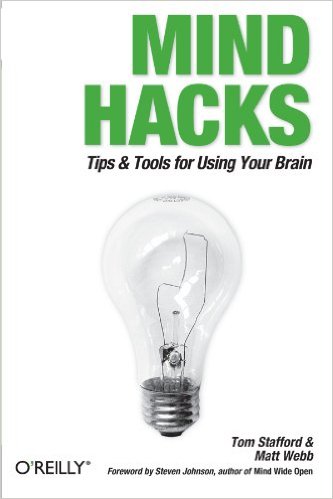Bookshelf
Mind Hacks: Tips & Tools for Using Your Brain
The brain is a fearsomely complex information-processing environment – one that often eludes our ability to understand it. At any given time, the brain is collecting, filtering, and analyzing information and, in response, performing countless intricate processes, some of which are automatic, some voluntary, some conscious, and some unconscious.
Cognitive neuroscience is one of the ways we have to understand the workings of our minds. It's the study of the brain biology behind our mental functions: a collection of methods – like brain scanning and computational modeling – combined with a way of looking at psychological phenomena and discovering where, why, and how the brain makes them happen.
Mind Hacks is a collection of probes into the moment-by-moment works of the brain. Using cognitive neuroscience, these experiments, tricks, and tips related to vision, motor skills, attention, cognition, subliminal perception, and more throw light on how the human brain works. Each hack examines specific operations of the brain. By seeing how the brain responds, we pick up clues about the architecture and design of the brain, learning a little bit more about how the brain is put together.
Featured On Episode #101
Brain Games
It's an hour on the brain, the senses, and how you can fool them both. We're joined by neuroscientist Tom Stafford, co-author of the book Mind Hacks: Tips and Tricks for Using Your Brain. We'll talk about how your brain processes information, and all of the fascinating ways you can make it mess up. And researcher Dr. Sarah Brosnan explains her study of game theory, and how humans compare to other primates when it comes to cooperative play. If you'd like to help the victim of the Christchurch earthquake, please visit the New Zealand Red Cross.


